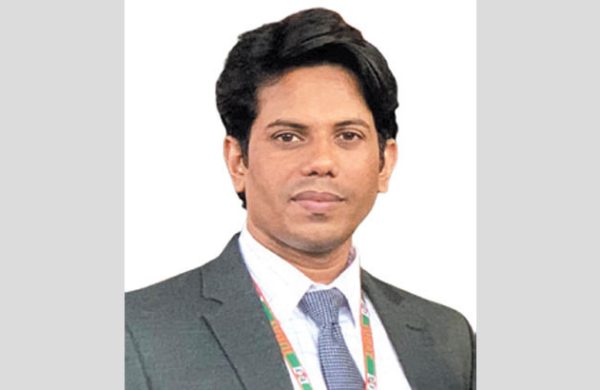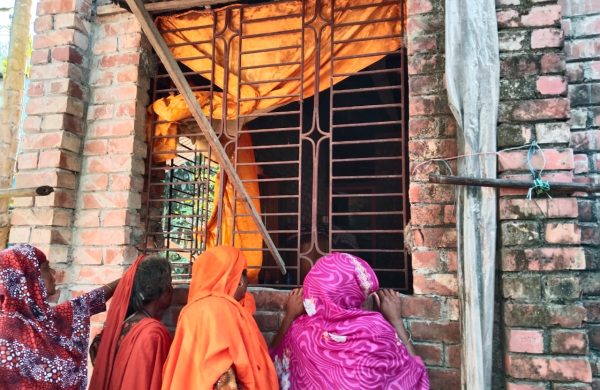Modi’s Neighbourhood Policy: Rhetoric Vs Reality
- Update Time : Saturday, June 22, 2024

—Jagdishor Panday—
Three times chief minister of Gujarat state, Narendra Modi, in 2014, for the first time ruling from the centre, invited the SAARC state leaders to New Delhi in the swearing-in ceremony and affirmed that his government would closely and cordially work with its neighbours. Modi’s frequent visits to neighbouring countries also symbolised the perspective of his ‘Neighbourhood First Policy’.
Coming down the line on Modi’s third term oath-taking ceremony, his Neighbourhood First Policy shifted from SAARC (2014) to BIMSTEC (2019) (excluding some countries of SAARC) and later to the Pacific and Indian Ocean Region, eliminating some countries of BIMSTEC.
Geo-political analyst Chandra Dev Bhatta commented that during his third swearing-in ceremony, Narendra Modi invited heads of the states and governments from South Asian region, except Pakistan and Afghanistan. “What is interesting, however, is the way these swearing-in ceremonies are used. In fact, they are not only about celebration, but are also used to project the power of Bharat apart from advancing the national interests in the murky geopolitical situation,” Bhatta commented referring to the swearing-in ceremonies in Modi’s tenure. “If we look at it carefully— in 2014 he invited the heads of states and governments from South Asia; the 2019 ceremony included the heads of states and governments from the BIMSTEC countries.
This time around the invitation has reached deeper into the Indian Ocean Region at a time when ocean’s strategic importance has increased with the arrival of the Indo-Pacific strategy. All these are the perfect experts (sic) of Summit Diplomacy as well.”
There is a contrast between the rhetoric and reality in Modi’s Neighbourhood First policy. In rhetoric, firstly, he wants to build good relations with the SAARC countries. But in reality, the relationship is shifting towards the east as well as the Pacific and Indian Ocean Region. Interestingly, during all these oath-taking ceremonies, Nepal, Bangladesh, Bhutan and Sri Lanka were invited by Modi.
During Modi’s 10-year tenure, India had the best relationships with Sheikh Hasina-led Bangladesh and Bhutan, putting aside Nepal which faced a blockade in 2015 and engaged in a map dispute with India in 2020. After the problem with the ‘Chinese debt-trap’ controversy, and the fall of the Rajapaksa government in Colombo, India supported Sri Lanka in the economic crisis.
It means New Delhi and Colombo are rebuilding their old friendship.
Maldives which missed Modi’s second-term swearing-in ceremony has a growing relationship with another neighbour— China. Delhi and Beijing have had a border dispute for the past few years. Earlier this year, President Mohamed Muizzu– the anti-Indian leader in Malé, signed a military assistance pact with China. Moreover, facing mounting pressure from Muizzu’s government, India pulled its military personnel back from Maldives. Although Modi invited Muizzu to his third swearing-in ceremony, there are many things that need to be fixed to build a normal relationship.
After the Taliban came into power in 2021, no countries including India recognised the new government. And India and Pakistan have had a long rivalry since its independence in 1947 which still reflects eight decades later. Their fights have harmed regional cooperation and SAARC has become limbo. The 19th SAARC Summit which was supposed to be held in Islamabad in 2016 is yet to be organised.
India’s relationship with another neighbour and a BIMSTEC member Myanmar is in a sour state these days after the Junta took over in early 2021. Despite announcing a neighbourhood first foreign policy from its beginning, the Modi government has always focused on organisations like G-20, BRICS, QUAD, Indo-Pacific Strategy, SCO etc. as well as strengthening relations with the US, Europe, Russia and other powers in the world.
In his second term, Modi appointed the career diplomat S. Jaishankar who always focused beyond the neighbours. India wanted to be a leader of the Global South and the fifth-largest economy in the world. But it must remember its neighbours to move forward.
India has already announced plans to get UN Security Council membership and countries like Nepal have already announced support for New Delhi’s greater role in the UN. Sometimes, it looks like India and the Modi government have forgotten its neighbours— who are crucial to surviving in the long run. There is a popular saying, “You can change everything but not your neighbour.” So, it looks like rhetoric versus reality in Modi’s Neighbourhood First policy. However, the Modi government should mean what it says regarding the policy to make a cordial relationship with its neighbours.
Former Indian Foreign Secretary Shyam Saran, during his recent visit to Nepal after Modi started his third term, said India needs to take the neighbourhood first policy to the grassroots level. In an interaction programme organised by the Centre for Social Innovation and Foreign Policy (CESIF), former ambassador to Nepal Saran added, “Since India is a big country in this sub-continent, we should have relations with the neighbours with a big heart.” Saran made it clear that for India to be powerful in Asia and the world, first of all, relations with its neighbours should be harmonious. However, after assuming power, Modi will visit Europe first. Let’s hope his Neighbourhood-First policy will be implemented in reality.
______________________________
The writer is Deputy Chief Sub-Editor at Kantipur Daily newspaper based in Nepal



















